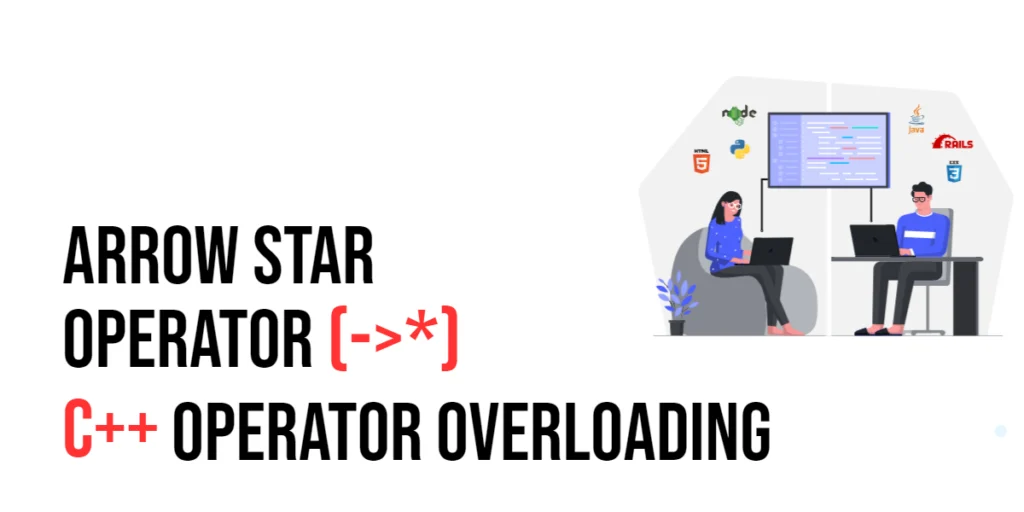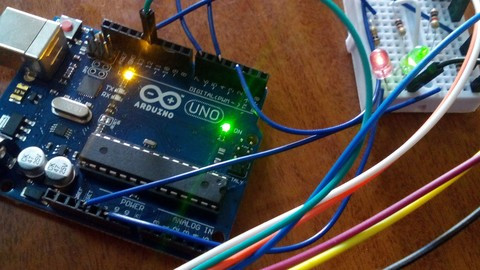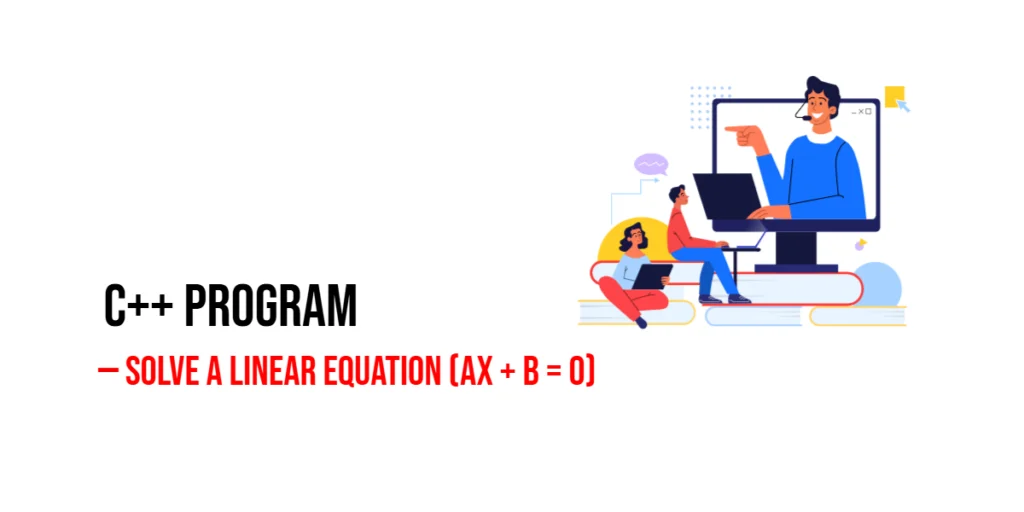Operator overloading in C++ is a fascinating feature that lets programmers customize how operators work with their own types of data. This capability is a big part of what makes C++ both powerful and adaptable. Among the many operators that you can redefine in your own way, there’s a special and not-so-familiar one called the arrow star operator (->*). In this article, we’re going to dive into what this operator is all about, find out when you might use it, and how to implement it effectively. Plus, we’ll walk through some complete code examples to show you this operator in action, making it easier to understand and apply in your own projects.

with hands-on learning.
get the skills and confidence to land your next move.
What is the Arrow Star Operator?
In C++, the arrow star operator (->*) is a fascinating tool used to access members of a class indirectly through a pointer. To fully appreciate its utility, let’s first look at what member pointers are. A member pointer in C++ can either point to a data member of a class (like an integer or string variable) or to a function member (methods of the class).
The arrow star operator shines in scenarios where you need the flexibility to choose which member of a class to interact with during runtime rather than being fixed at compile time. This is particularly useful in more dynamic or flexible object-oriented programming situations, enhancing the power of your code.
Syntax and Usage of the ->* Operator
The basic syntax for using the ->* operator is straightforward:
object_pointer->*member_pointerHere, object_pointer is a pointer to an object (i.e., it holds the address of an object), and member_pointer is a pointer specifically pointing to a member within that object’s class.
Simple Code Example: Demonstrating the ->* Operator
Let’s dive into a simple example to clarify how you might use the ->* operator in practice:
#include <iostream>
class MyClass {
public:
int myNumber; // An integer member of MyClass
void display() const { std::cout << "The number is: " << myNumber << std::endl; } // A member function
};
int main() {
MyClass obj; // Create an object of MyClass
MyClass* pObj = &obj; // Pointer to the object
int MyClass::* pMember = &MyClass::myNumber; // Pointer to the member variable myNumber
pObj->*pMember = 10; // Using ->* to set the value of myNumber through a pointer to obj
void (MyClass::* pFunc)() const = &MyClass::display; // Pointer to the member function display
(pObj->*pFunc)(); // Using ->* to call the display function through a pointer to obj
return 0;
}In this example:
- pMember is a pointer to myNumber, a member of MyClass.
- By using the arrow star operator, we set the value of myNumber to 10 through pObj, a pointer to an instance of MyClass.
- Similarly, pFunc is a pointer to the member function display, and we invoke this function using the same operator.
This functionality illustrates the power of the ->* operator to manipulate and access the properties and behaviors of an object indirectly, providing significant flexibility in how objects are handled in more complex systems.
Overloading the Arrow Star Operator
Sometimes, you may find yourself in a situation where the default behavior of the arrow star operator (->*) isn’t quite what you need. This is especially true when working with advanced features like proxy classes, smart pointers, or when you need to implement specific forms of access control. Overloading this operator can provide a tailored approach to handling member pointers, giving you greater flexibility and control over how your objects behave.
Code Example: Customizing the Arrow Star Operator
To see how you can customize the ->* operator, let’s dive into a practical example where we’ll create a SmartPointer class. This class will manage a pointer but also modify how member pointer access is handled:
#include <iostream>
// Define a template for our SmartPointer
template<typename T>
class SmartPointer {
public:
T* ptr; // The actual pointer to the object
explicit SmartPointer(T* p = nullptr) : ptr(p) {}
// Overloading the arrow star operator
template<typename U>
auto operator->*(U pMember) {
std::cout << "Accessing member through SmartPointer\n";
return [this, pMember]() { return (ptr->*pMember)(); };
}
};
// A simple class to demonstrate with
class Resource {
public:
void show() { std::cout << "Resource::show() called\n"; }
};
int main() {
Resource* r = new Resource();
SmartPointer<Resource> sp(r); // Wrap the Resource object in a SmartPointer
void (Resource::* func)() = &Resource::show; // Member pointer to the show function
(sp->*func)(); // Access the show function via our overloaded operator
delete r; // Clean up the Resource object
return 0;
}In this example, the SmartPointer class encapsulates a raw pointer and redefines how the arrow star operator works for its objects. Instead of just performing the operation, it first prints a message (“Accessing member through SmartPointer”), giving us visibility into the operation. This kind of behavior is particularly useful when debugging or when specific actions need to be taken whenever member access occurs.
Why Overload the Arrow Star Operator?
Overloading this operator in scenarios involving smart pointers or proxy classes allows developers to interject additional logic such as:
- Logging accesses to members.
- Implementing lazy initialization.
- Managing access permissions.
- Monitoring and statistics collection.
This capability enriches the overall functionality of the class, making it not just a passive entity but an active participant in the program’s execution flow.
The use of templates in the SmartPointer class ensures that our smart pointer can manage any type of object and seamlessly access any of its members, whether they are methods or data, while still providing our custom behavior.
Overloading the arrow star operator might seem like a niche skill, but it’s one that can significantly enhance the functionality of your C++ applications. It allows for a more controlled and sophisticated manipulation of member access, making it a powerful tool in your C++ arsenal. Remember, with great power comes great responsibility; always use operator overloading wisely to maintain clean and maintainable code.
Conclusion
The arrow star operator (->*) may not be the most popular kid on the block in the world of C++, but it’s definitely a powerhouse when it comes to accessing class members indirectly. This operator, particularly when overloaded, is perfect for controlling how members are accessed in more complex constructs like proxy classes or smart pointers. This allows for smarter, more controlled programming.
Overloading this operator effectively opens up new possibilities in your programming toolbox, enabling you to develop more flexible and robust C++ applications. However, like any tool in programming, it comes with a note of caution: use it wisely. Overloading operators can sometimes make your code harder to read and understand, which could lead to maintenance challenges.
Always ask yourself: does overloading this operator make my code cleaner and more efficient? Does it make the behaviors of objects more intuitive? If the answer is yes, you’re likely on the right track to leveraging the full potential of operator overloading in enhancing your C++ applications.







